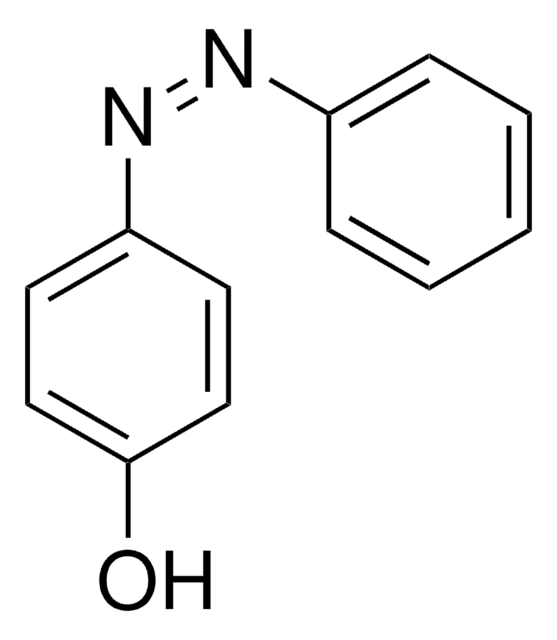199672
Sudan Orange G
Dye content 85 %
Sinónimos:
2,4-Dihydroxyazobenzene, 4-(Phenylazo)resorcinol, SOG
About This Item
Productos recomendados
form
powder
Quality Level
composition
Dye content, 85%
mp
143-146 °C (lit.)
solubility
chloroform: 1 mg/mL, clear, orange to red
λmax
388 nm
application(s)
diagnostic assay manufacturing
hematology
histology
storage temp.
room temp
SMILES string
Oc1ccc(\N=N\c2ccccc2)c(O)c1
InChI
1S/C12H10N2O2/c15-10-6-7-11(12(16)8-10)14-13-9-4-2-1-3-5-9/h1-8,15-16H/b14-13+
InChI key
BPTKLSBRRJFNHJ-BUHFOSPRSA-N
¿Está buscando productos similares? Visita Guía de comparación de productos
Categorías relacionadas
General description
Application
signalword
Warning
hcodes
Hazard Classifications
Eye Irrit. 2 - Skin Irrit. 2 - STOT SE 3
target_organs
Respiratory system
Storage Class
11 - Combustible Solids
wgk_germany
WGK 3
flash_point_f
Not applicable
flash_point_c
Not applicable
ppe
dust mask type N95 (US), Eyeshields, Gloves
Elija entre una de las versiones más recientes:
¿Ya tiene este producto?
Encuentre la documentación para los productos que ha comprado recientemente en la Biblioteca de documentos.
Los clientes también vieron
Chromatography?Mass Spectrometry
Nuestro equipo de científicos tiene experiencia en todas las áreas de investigación: Ciencias de la vida, Ciencia de los materiales, Síntesis química, Cromatografía, Analítica y muchas otras.
Póngase en contacto con el Servicio técnico













